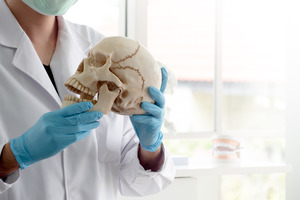
From the earliest cave paintings to modern-day documentaries, humanity’s intrigue with its ancestry and evolution remains unquenched. Among the myriad ways we trace our roots, dental archaeology, in tandem with bioarcheology and osteoarchaeology, offers a unique window into our past.
Ancient Teeth and Dietary Trends
Teeth, often considered the steadfast markers of time, reveal intriguing tales of our ancestors’ dietary habits. For instance, teeth bearing normal wear and markings typically point towards a diet rich in meat, hinting at a hunter-gatherer lifestyle. On the other hand, the presence of cavities could be indicative of an agricultural shift. This transition from hunting to farming, interestingly, also brought about a rise in dental issues. Teeth, thus, not only reflect personal dietary choices but also narrate broader regional stories, marking the advent of agriculture in specific pockets of the world.
Determining Age through Teeth
Beyond diet, fossilized teeth are remarkable age markers. Depending on their size, shape, and wear patterns, one can distinguish between the young and the old, and even among different stages of adulthood. For instance, pronounced wear and a high incidence of tooth decay often correlate with advanced age. These dental records act as timestamps, revealing a snapshot of an individual’s life.
Genetics, Migration, and Ancient Teeth
With modern scientific advancements, the extraction of DNA from age-old teeth has been revolutionary. Such genetic markers unveil the migratory tales of ancient populations. For instance, a tooth from an erstwhile hunting region showing signs of specific decay patterns can hint at the introduction of plant-based diets, potentially marking the birth of agriculture or flagging overhunting in the area. Moreover, through DNA, we can trace the journey of ancient diseases like the plague and even link distant ancestors to people living today.
Relevance of Dental Archaeology in Modern Times
Modern dentistry, while sophisticated, owes much to its ancient counterparts. Insights from dental archaeology have revealed innovative ancient dental techniques, like rudimentary dentistry and bridging systems. The study of ancient teeth doesn’t just serve historical or anthropological curiosity; it fuels modern dentistry’s growth. As we unearth and study more ancient teeth, we gain profound insights into the pivotal role teeth have played throughout our shared history.
In conclusion, dental archaeology continues to be an enlightening field, bridging our past with the present and offering insights into humanity’s shared journey. As archaeological endeavors persist, there’s no doubt that our ancestral teeth will have more tales to tell.
About the Author
Dr. Shue Her has been in dentistry for nearly a decade, and he never tires of being able to take people’s broken smiles and transform them for the better. He also loves being able to get to know his patients, and forming a rapport with them that allows him to tailor treatment to their needs. Dr. Her received his degree from the University of Minnesota School of Dentistry. Since then he has completed extensive continuing education courses, from learning Chao Pinhole Surgery from the inventor to studying Full Arch All-On-4 implant restorations at the 3D Dentist Institute.
If you have any questions about the role your teeth can play in your history, he can be reached at his website or by phone at (770) 536-6688.
